By Nellie Beckner, Assistant Village Manager
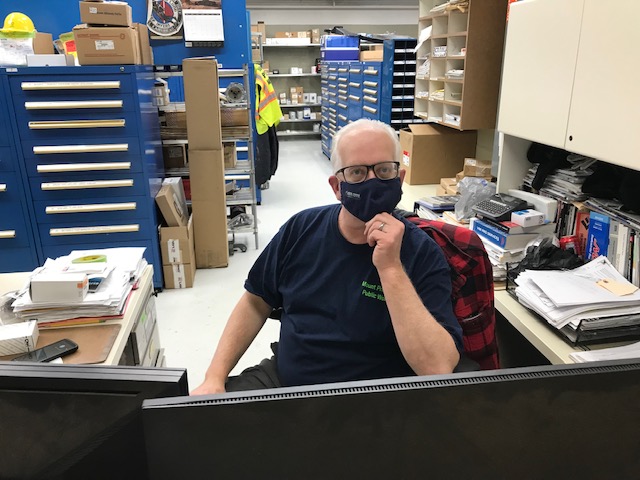
When reflecting on the COVID-19 pandemic, it is essential to keep in mind that the Village did not stand alone in our response. The Village made a cognizant effort to follow and promote State-issued restrictions and guidance (as well those independently issued by the CDC and Cook County) in the interest of protecting public health and safety of our community and team members. We relied on experts both within and outside our organization to guide the Village’s internal and external policies. The Village began working to address pandemic restrictions right away by opening our “EOC” – emergency operations center – so the Leadership Team could meet, discuss challenges/logistics, and begin to utilize our Continuity of Operations Plan (COOP). It is through these daily meetings – which were held virtually for several weeks – that we were able to discuss every aspect of our pandemic response, from working remotely to business assistance.
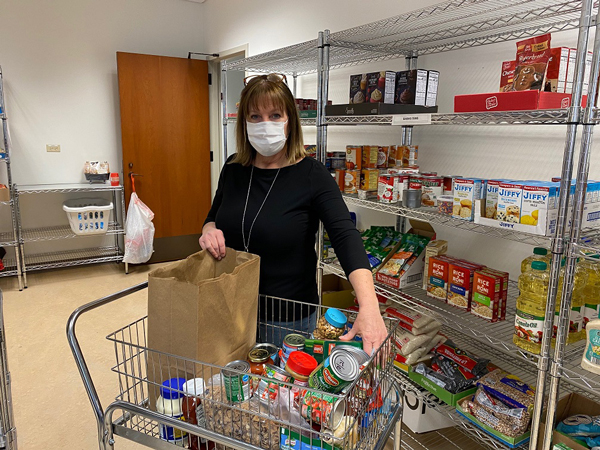
We reduced staff in Village Hall and closed the Public Works and Fire Headquarters to the public starting March 16, and then closed Village Hall to the public in conjunction with the Governor’s Stay-at-Home orders on March 31. The Village’s employee population is best categorized in two groups: those that can perform work from home, and those who cannot. The Police, Fire, and Public Works departments remained serving our community “in-person” throughout the pandemic. The Village had a sufficient stock of personal protective equipment to ensure our first responders were able to safely respond to emergency calls. The Mount Prospect Emergency Management Agency were effective in obtaining additional equipment to ensure work areas were sanitized. To help protect as many employees as possible, we issued masks and sanitizer, immediately instituted masking and distancing policies for all employees, and staggered shifts as best we could to protect our staff. Although we did not conduct in-person business at Village Hall or the Public Works counter, we did have a few staff in the office on a rotating basis, as there are some tasks that are done preferably in an office environment. Although these buildings were closed, we insisted on providing all services to our residents and businesses throughout the stay-at-home order. Staff proved very effective working from home, thanks in part to IT preparing employees with the technology needed to be successful while working remotely. We launched an online building permit software, and encouraged all residents and businesses to conduct business electronically such as bill payment and requests for service. The Village purchased Go-To-Meeting and Go-To-Webinar software to meet virtually, both for internal staff use as well as meeting externally.
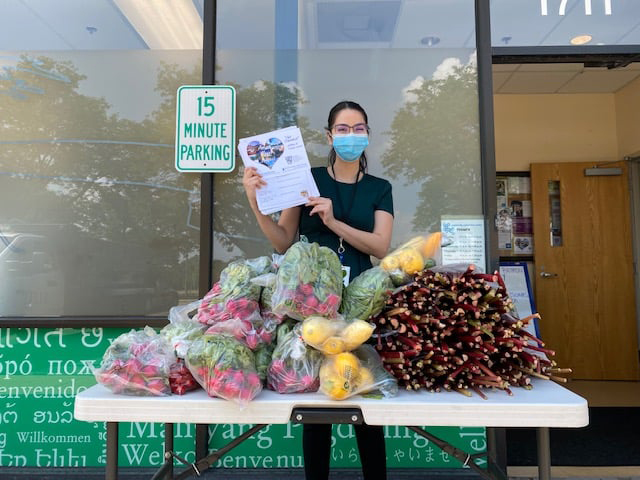
The Village reopened doors to the public the last week of May 2020. Prior to, we again distributed masks and sanitizer gel and wipes, separated work spaces for social distancing and installed Plexiglas barriers at our front counters.
Each department had its own challenges but, thanks to our daily Leadership meetings, everyone was kept in the know and able to respond as a team. One of the greatest concerns we had at the start of the pandemic was having illness spread throughout an entire shift or department. The Village was fortunate to not experience significant shortage of staff due to illness throughout the pandemic. This is also a testament to our staff for being diligent about prevention measures.
Once the State of Illinois mandated prohibitions on gatherings of 25, then 10 or more people, the Village began to hold Village Board meetings, as well as other commission meetings, online using the Go-To-Meeting/Webinar platform. We were also able to do so thanks to the Governor’s issuing an emergency order modification to the Open Meeting Act requirements. The Village reached the public by sharing the link of the meeting online so the public could watch on their computer or smart phone; the meetings were still broadcast on local cable access television. The Village was able to take in commentary both through the software’s messaging features as well as via email prior to the meeting.
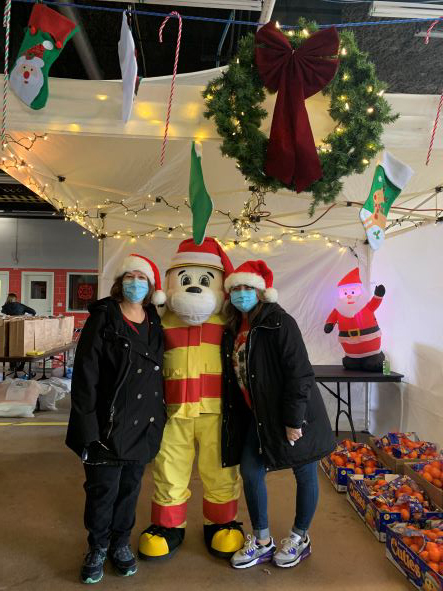
A few of the greatest challenges seen by the Administration Department during this time dealt with communication and COVID-19’s financial impact. Residents were seeking information about COVID restrictions which we were not able to answer; questions such as “when can I re-open my restaurant”, “when is lock-down going to end” or “are you having [event] this year”? These questions were asked of staff several times a day, and not having answers lead to increasing frustration for both sides. Village staff was made aware of extensions to the State’s emergency orders, masking mandates, etc. generally at the same time as the rest of the public. At most, we were given a “heads up” an hour or so before a press conference. Although key staff participated in conference calls with the Cook County President or even the Governor’s office, these rarely provided the answers to those aforementioned questions, and instead were more of an update on infection rates, programs created to assist residents/businesses, and similar news. Nonetheless, the Village remained persistent in our attempt to share information to the public by posting almost daily to the COVID-19 page on the Village website, sharing news on social media and via press releases.
The Village kept up-to-date statistics on COVID-19 positive cases as well as deaths for Mount Prospect as well as surrounding municipalities. County and State positivity rates were also monitored as they were key to moving toward various phases in the Restore Illinois plan to reduce mitigation restrictions. The data that the Village tracked was gathered directly the Illinois Department of Public Health’s and Cook County Department of Public Health’s websites; we were not given any additional data that was not shared publically.
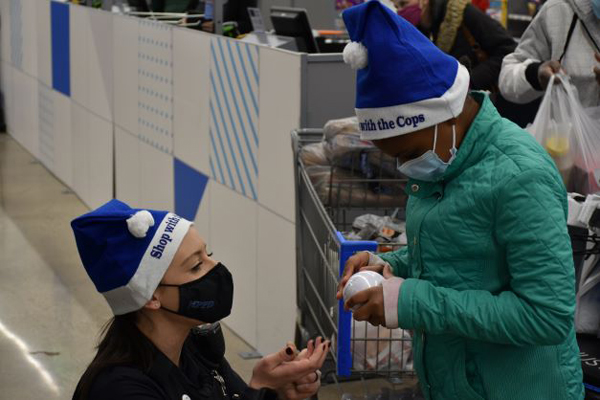
Another challenge was being asked to predict the future during an unprecedented time, and this includes financially. We could predict that the closing of restaurants, theaters, and the cancellation of social events would have an impact on sales tax revenue. Initial forecasts seemed to indicate a loss of $5.6 million in revenues with an estimated General Fund impact of $3.8 million. However, our teams stepped up and implemented our Budget Contingency Plan, which includes expense reductions, and the shortfall was reduced to $1.7 million by the end of 2020; the majority of the revenue losses ($868,000) were seen in state/local sales taxes, including food and beverage and hotel/motel tax. The savings came both in the form of certain event cancellations (such as not holding the Downtown Block Party) and by implementing temporary holds on department allocations to the Vehicle Replacement Fund. By early 2021, when final numbers were in, the Village’s actual revenues revealed there was no net loss for 2020 after considering outperforming income tax revenue, ambulance billing fees and CARES Act grants.
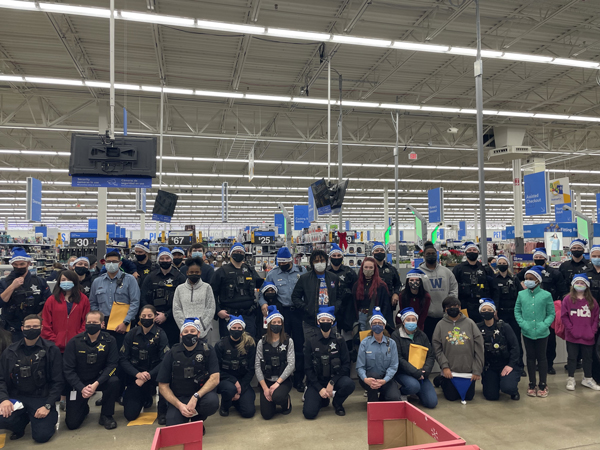
Many businesses also struggled financially due to restrictions and a change in customer behavior. Restaurants in particular suffered due to the limitations on dining-in. The Village was able to offer a COVID-19 Restaurant Assistance Program, dispersing grants of $10,000 each for qualifying restaurants. A total of $590,000 in grants were awarded to 59 restaurants throughout Mount Prospect. In addition, a special allocation of Community Development Block Grant (CDBG) funds were acquired, allowing the Village to give 22 additional grants to qualifying restaurants. In total, $830,000 in grant money was allocated to 81 restaurants in 2020. In addition to financial assistance, we fast-tracked the review for outdoor dining permits and promoted take-out and delivery options for all restaurants via our Experience Mount Prospect website. In the 2020 – 21 year, just a handful of businesses (not all restaurants) closed their doors, due in part from pandemic hardship. In addition, we saw no significant delays in projects other than what could be best described as supply chain disruptions – major projects throughout downtown, for example, continued construction, with Maple Street Lofts and 10 N. Main both opening and renting with great occupancy rates considering the economic environment.
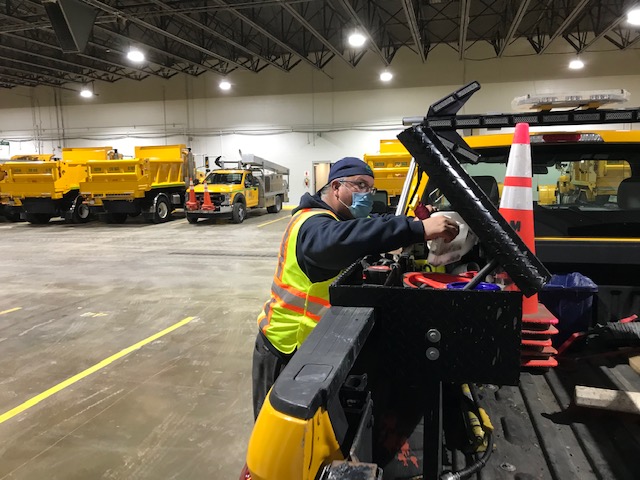
The Village understood that many of our residents were suddenly placed in tough financial situations due to job loss or illness, so the Human Services, Police and Fire Departments worked together to provide as much assistance as we could accommodate. Increased push for donations for the food pantry was accomplished by the launch of an online donation page, and contributions flourished. Due to COVID safety protocols, we were not able to accept nor distribute food in our traditional manner. We had staff collect funds and purchase food, which was then shared to those in need via a “drive-thru” contactless pick up. In addition, the Human Services team worked with various organizations to assist residents with rent or utility payments, and, once available, signed up seniors for hard-to-get vaccinations. Every day, our first responders were dealing with a stressed or frustrated public, and their patience and professionalism is admirable. This staff worked tirelessly to provide access to care and assistance while also dealing with the impacts of the pandemic in their own lives, and we remain grateful for their contributions.
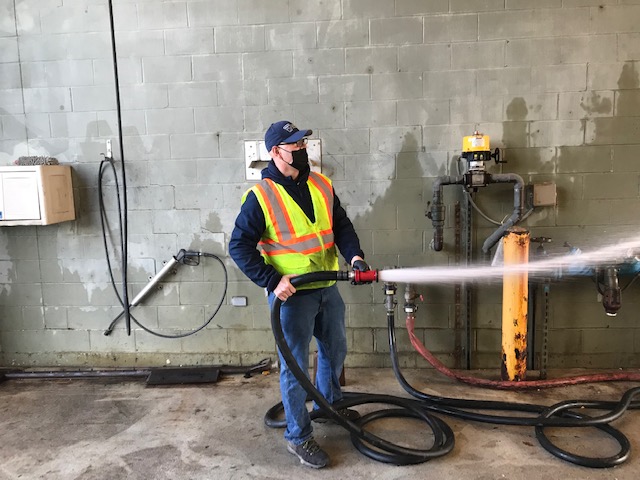
Moving into a transition phase, of which, due to ongoing mitigation measures and State emergency declarations still exists, has also had its challenges. Planning for events, even those held outdoors, had an air of uncertainty as the Village needed to follow whatever mitigation measures would be in place at the time of the event. Event guidance from the State was not perfect – there was no ideal way to categorize all types of events, and our staff was not in the position to “police” items like masking and distancing at large-scale events. Fortunately, by the spring of 2021 and the return of the Lions Club 4th of July Festival, most individuals understood how to attend public events in a responsible fashion and we did not get large-scale complaints on compliance.
Overall, the Village is able to respond to this and potential future crisis by relying on our ability to prepare for the unexpected and communicate effectively. Our organization was fortunate, for example, to have a stockpile of N-95 masks on-hand at the start of the pandemic, due to emergency preparation policies currently in place. This put our team in a position to immediately protect ourselves while continuing to provide essential services. In addition, the Village’s Continuity of Operations Plan helped us to remain organized internally and clearly outlined roles for every employee. Even when working remotely, our focus on communication was essential to managing through this crisis successfully. Regular meetings with staff and other community leaders, such as leadership within the school and park districts, and business organizations, allowed the Village to assess our response on a regional scale, share information, and provide assistance when able. Lessons that most everyone has learned over the past 20+ months is we are able to accomplish more when we work together, heed expert advice and support one another.